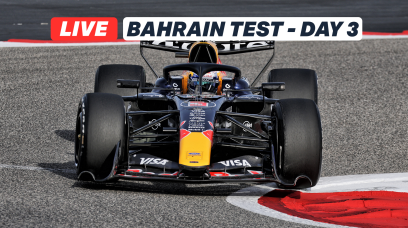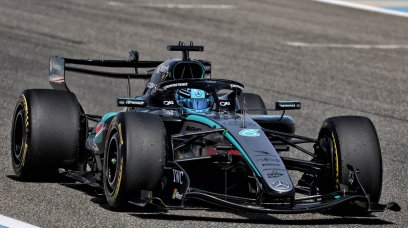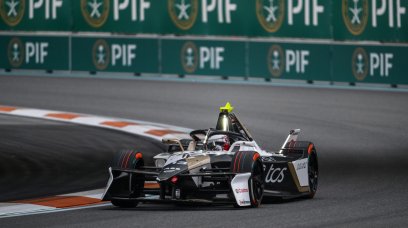When Carlos Sainz ran over a loose water valve cover in the opening nine minutes of practice for the Las Vegas Grand Prix, it had an inadvertent consequence in the battle for second in the Constructors' Championship. The crash forced Ferrari to replace the survival cell, internal combustion engine, energy store, and control electronics which were all "damaged beyond repair" according to the team. You would think that such a freak accident would allow for force majeure in the rulebook, but Sainz was still handed a 10-place grid penalty for the race because he used a third energy store outside of his permitted allocation. While the stewards acknowledged that extreme circumstances should allow him to take new parts outside of his pool, the rules themselves do not allow for “mitigating, unusual and unfortunate circumstances." The situation would play into the hands of Mercedes, as it put Sainz on a recovery drive in a car that was able to challenge for a race win. This impacted the points gap between the two when they reached Abu Dhabi, with the Silver Arrows only taking second by three points from Ferrari. Even though they have secured P2 in what has arguably been its worst season to date since its return, Team Principal Toto Wolff told select media including RacingNews365 that he sympathised with Sainz. "What happened to Carlos was absolutely unfair and me as a racer, I'm the first one to say that he didn't deserve the outcome. I think we should look at the rules," says Wolff. "Force majeure as a difficult one, though, what happens with kerb strikes? You destroy your car by riding over a kerb, there's nothing we can do. "What if you're riding over bumps with cold tyres, like what happened to Lando [Norris], and you smash it into the wall? Are people going to say this is a force majeure event? "What if another car T-bones you and you haven't done nothing, is that force majeure? Nobody liked the situation with us as sportsmen, it wasn't just what happened to him. "It ruined the race weekend for him that he maybe could've won. So we have to think hard about how we want to change that."
Making cut-throat decisions
On the other hand, the cut-throat nature of competition at the top level of motorsport means that teams and drivers must take a mile for every inch of advantage they are handed. Suggestions that Mercedes might have blocked a potential waiver of a penalty for Sainz were rife, although the team dismissed it as speculation due to previous precedents. Even if there was a provision in the regulations, Wolff believes it would be foolish not to exploit amid a tight championship battle. "As a Team Principal for rival team that is fighting for P2, I need to look at the regulations and at the full scope of possible actions of ourselves in order to finish P2 in the championship," explains Wolff. "If the regulation says so, I need to act for the benefit of the team and 2,500 people. That will have a very big difference in bonuses, people would be free to act to the limit of the regulations. "If we lost the championship by five points because I have acted in sporting fairness, and the rules would have allowed me to actually penalise the car, I need to do this. "And every other Team Principal will do it as much as it's unfair. "I need to decide, is it unfair for a rival driver? It is. But I have 2,500 people that I'm literally responsible for that pay mortgages and school fees. So it's a no-brainer. "I think it's important that we sometimes, put ourselves into the other's position. "I have done that for Carlos and it's awful. The other way around, I'm not sure whether the exercise was done."
I need to act for the benefit of the team and 2,500 people
Toto Wolff
Mercedes bear the brunt
Mercedes found itself at the brunt of the regulations in Austin at the end of the United States Grand Prix, when Lewis Hamilton was disqualified from second along with third-placed Charles Leclerc for excessive skid block wear. It was the first time since 1994 a car had been disqualified for such a breach, although pundits and fans questioned the process given the more extensive checks by the FIA were only carried out on four cars and 50% of those failed. Even though there was proof that there were mitigating circumstances which led to the technical breach, Wolff feels it would be difficult to find a regulation that caters to every scenario. "With our plank disqualification [in Austin], we can say the bumps were much more than we expected and we couldn't change it," he said. "It was a Sprint weekend and it was force majeure, where we come up with all kinds of measurements that show the bumps were higher than expected. "For me riding the kerbs and destroying your skid blocks and falling foul of the regulations. It's unfair, but we haven't found a regulation that would cover these things."
Most read






